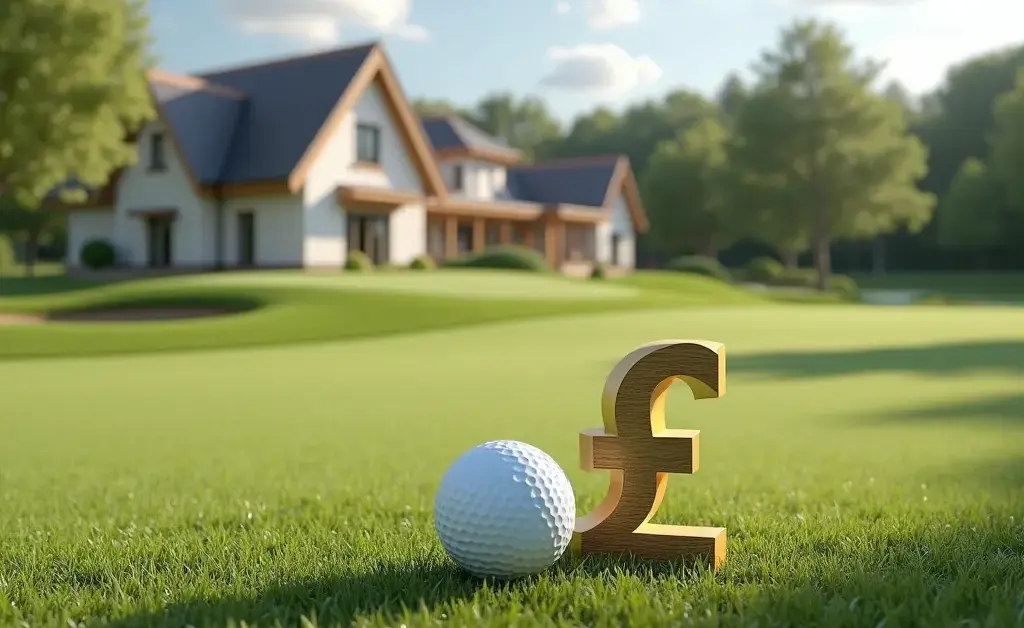- Understanding Golf Course Property Investments
- Financial Considerations
- Market Trends and Demand
- Potential Returns on Investment
- Risks Involved
- Expert Insights and Case Studies
- Future Outlook and Trends
- Practical Tips for Investors
- Conclusion
- Frequently Asked Questions (FAQ)
- What are the main benefits of investing in golf course property?
- What are the risks associated with investing in golf course property?
- How can I determine if a golf course property is a good investment?
- Can I rent out a golf course property when I’m not using it?
- How does climate change affect golf course property investments?
- View our available properties on golf courses
Understanding Golf Course Property Investments
What Is Golf Course Property?
Golf course property refers to real estate situated within or adjacent to a golf course. These properties often include residential homes, condominiums, or land plots that are part of a golf course community. The appeal of such properties lies in the scenic surroundings, exclusivity, and the lifestyle associated with golfing.
Types of Golf Course Properties
There are various types of golf course properties:
-
Residential Homes: These are private homes located on or near a golf course, often within gated communities.
-
Condominiums: Multi-family units with access to golf course amenities.
-
Land Plots: Undeveloped land for custom home building within a golf course community.
Historical Perspective on Golf Course Investments
Historically, golf course properties have been considered a luxury investment, often tied to the fortunes of the real estate market and the popularity of golf as a sport. The market has seen fluctuations based on economic conditions and changes in golfing demographics.
Financial Considerations
Initial Investment Costs
Investing in golf course property typically requires a significant initial outlay. This includes the purchase price of the property, which can be higher than similar properties not located near a golf course, as well as closing costs and any immediate renovations or customizations.
Maintenance and Upkeep
Owning a golf course property comes with ongoing maintenance costs, which can be substantial. These include landscaping, membership fees for the golf course, and potential homeowner association (HOA) dues.
Taxes and Insurance
Property taxes for golf course properties can be higher due to the premium location. Additionally, insurance costs may be elevated if the property is in an area prone to natural disasters or if additional coverage is needed for the golf course itself.
Market Trends and Demand
Current Market Trends
The demand for golf course properties fluctuates with the real estate market and the popularity of golf. Recent trends show a resurgence in interest, particularly among retirees and those seeking a luxury lifestyle.
Buyer Demographics
Typical buyers of golf course properties include retirees, golf enthusiasts, and high-net-worth individuals looking for vacation homes. Understanding these demographics is crucial for investors targeting this market.
Impact of Location
Location is a critical factor in the value of golf course properties. Properties located in well-known golf destinations or regions with a strong golfing culture are likely to see higher demand and appreciation.
Potential Returns on Investment
Rental Income Potential
Golf course properties can generate rental income, especially in popular golf destinations. Short-term rentals, such as those on Airbnb, can be particularly lucrative during peak golf seasons.
Property Appreciation
Over time, well-maintained golf course properties can appreciate in value, especially in areas with limited land for new developments. The exclusivity of such properties often contributes to their long-term value.
Resale Value
The resale value of golf course properties can be strong, particularly in markets where demand for luxury homes is high. However, resale potential is heavily influenced by the overall real estate market and the condition of the golf course itself.
Risks Involved
Market Volatility
Like any real estate investment, golf course properties are subject to market volatility. Economic downturns or a decline in the popularity of golf can negatively impact property values.
Environmental and Regulatory Risks
Environmental factors, such as water shortages or zoning changes, can pose risks to golf course properties. Additionally, regulatory changes affecting golf courses, such as restrictions on water use or pesticide application, can impact property values.
Competition and Oversupply
An oversupply of golf course properties or competition from new developments can drive down property values and make it harder to sell or rent out the property.
Expert Insights and Case Studies
Expert Opinions
Experts in real estate and golf course management often emphasize the importance of location, market research, and understanding the financial commitment involved. Investing in well-established golf communities with a strong track record can mitigate some risks.
Case Studies of Successful Investments
Case studies of successful golf course property investments often highlight the importance of buying in markets with limited supply, strong demand, and well-maintained golf courses. These factors can lead to significant appreciation and rental income.
Future Outlook and Trends
Emerging Trends in Golf Course Investments
The future of golf course property investments may be shaped by changing demographics, with younger buyers showing more interest in properties that offer a combination of luxury and sustainability.
The Impact of Climate Change
Climate change poses a significant risk to golf course properties, particularly those in areas prone to drought or extreme weather. Investors should consider the long-term viability of the golf course in the face of environmental challenges.
Technological Advancements in Golf Courses
Advancements in golf course management, such as smart irrigation systems and environmentally friendly maintenance practices, could make certain properties more attractive to eco-conscious buyers.
Practical Tips for Investors
Researching Potential Investments
Thorough research is crucial when investing in golf course properties. Investors should consider the financial health of the golf course, the surrounding real estate market, and the long-term viability of the investment.
Negotiation Tips
Negotiating the purchase price and terms of a golf course property requires a clear understanding of the property’s value, market conditions, and any potential issues that could affect future returns.
Diversifying Your Portfolio
Investors should consider diversifying their real estate portfolio to mitigate risks. While golf course properties can be lucrative, they should be balanced with other types of investments to ensure financial stability.
Conclusion
Summary of Key Points
Investing in golf course property can be a rewarding venture, offering potential for significant returns through appreciation and rental income. However, it also comes with unique risks that require careful consideration and thorough market research.
Final Thoughts
Golf course property investments are not for everyone, but for those who understand the market and are willing to take on the associated risks, they can be a valuable addition to a diversified investment portfolio.
Frequently Asked Questions (FAQ)
What are the main benefits of investing in golf course property?
Golf course properties often provide a luxurious lifestyle, scenic views, and exclusivity, which can lead to higher property values. Additionally, these properties can generate rental income, especially in popular golf destinations, and tend to appreciate over time if the surrounding community and golf course are well-maintained.
What are the risks associated with investing in golf course property?
The primary risks include market volatility, environmental and regulatory challenges, and competition from other properties. Additionally, high maintenance costs and potential declines in the popularity of golf can impact the profitability of such investments.
How can I determine if a golf course property is a good investment?
Research is key. Consider factors such as the location, the financial health of the golf course, market trends, and the demographics of potential buyers or renters. Consulting with real estate experts and reviewing case studies of successful investments can also provide valuable insights.
Can I rent out a golf course property when I’m not using it?
Yes, many investors rent out their golf course properties, especially during peak golf seasons. Short-term rentals on platforms like Airbnb can be particularly lucrative, but it’s essential to check local regulations and the rules of the community where the property is located.
How does climate change affect golf course property investments?
Climate change poses risks such as increased droughts, flooding, or extreme weather, which can impact the viability of golf courses and, consequently, the value of nearby properties. Investors should consider the long-term environmental sustainability of the golf course and the region.




